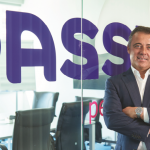Portugal’s recovery guru: is Costa Silva’s role about to get bigger?
Called by the Prime Minister António Costa in 2019 to design an economic blueprint for Portugal to 2030, António Costa Silva immediately became the man of the moment and was dubbed Portugal’s economy tsar. The president of oil company Partex accepted the invitation — and free of charge — as a “civic contribution”. Now, 18 months on and with the country in economic crisis, will his role expand?
The prime minister’s choice was controversial, as Costa Silva was largely unknown, yet here was the man who was to draft Portugal’s economic plan for the next decade.
The president of Partex, an oil and gas company, was appointed as an adviser to the government on 3 June 2019 and tasked with preparing the plan that would help bring the economy in line with the EU’s green and digital goals.
Portugal’s then Finance Minister, Mário Centeno, said at the time that he had “never spoken to him,” revealing that it was a rather surprising choice. The ex-president of Eurogroup seemed to distance himself from the appointment. “I have not spoken to him, never in my life,” he told Portuguese radio Antena 1.
The manager, 68, was responsible for drafting what is now the “Economic and Social Recovery Plan 2020-2030”. The document was delivered in the summer of 2019.
His choice had also raised eyebrows in the Portuguese press, largely because of doubts about the position he would occupy. Expresso classified him as a sort of a side-minister (para-ministro in Portuguese).
Marcelo Rebelo de Sousa, Portugal’s president, said that the prime minister had informed him of the appointment and that Costa Silva would not be a new member of the government. Will this now change?
Costa Silva said at the time that his recovery plan is a policy for bridging investment gaps caused by the loss of revenue during the last economic crisis from 2008-2014. Now, with the €1.7Bn EU ‘Bazooka,’ it is looking increasingly like he will oversee something between Portugal’s version of the US’s 1930s New Deal and Europe’s Marshall Plan.
Not consensual
Costa Silva’s choice was not consensual either. All parties in the parliament had some doubts about the super adviser, saying that they only accept to negotiate with government officials, which Cost Silva is not. That he might now be made one looks increasingly on the cards…or not!
Rui Rio from the Social Democratic Party even said back in 2019 that it was none of his business who the government calls on to prepare the long-term plan, “so long as the direct relationship during the negotiations is not with that person”.
Catarina Martins from the Left Bloc underlined “the Prime Minister is advised by those who he thinks that can do the job,” but also stressed the party will only negotiate with members of the government. The spokesperson of the Portuguese Communist Party, Jerónimo de Sousa, also agreed with this approach. Perhaps they will soon be satisfied and be doing just that?
Costa Silva told broadcaster RTP on 31 May 2019: “I believe the parties are correct. I have a lot of respect for them. My mission is not to negotiate, it is to make the plan. It is the government who will negotiate.”
Some Portuguese analysts argued that the choice of the president of Partex could be an attempt by the prime minister to pave the way for a change in his government. If at first the idea had been to have Costa Silva as the one responsible for negotiating the plan, it was soon taken off the table after the strong reaction from political parties. Now the Portuguese press is awash with speculation that a reshuffle is on its way.
The Portuguese recovery plan
In a long interview with the Portuguese news agency Lusa, Costa Silva said in 2019 that the economic recovery plan would have “about nine or ten strategic pillars”.
The plan would also focus on energy transition, climate change, decarbonisation and in the development of a balanced economy — all now central components of Portugal’s Presidency of the EU Council to June 2021.
Costa Silva’s plan has two visions, one for the short term — aiming to recover the economy and protect jobs — and a medium and long term.
The Partex’s CEO’s plan is now likely to be even more urgent since the economic crisis caused by the Covid-19 pandemic which has caused the Government to take on an extra €20Bn in borrowing to keep businesses afloat and people in jobs. It may also indicate that the economy tsar’s role may now be expanded.
It rather echoes the former British prime minister Margaret Thatcher’s decision to appoint economy guru Alan Walters as Chief Economic Adviser from 1981 to 1983 and (after his return from the United States) again for five months in 1989 much to the chagrin of cabinet members — who felt undermined — and members of parliament — who correctly stated he had not been chosen or vetted by the cabinet — at the time.
Portugal’s Presidency of the EU Council until the end of June has outlined the EU and Portugal’s policy goals to see a more efficient use of resources, innovation, digitalisation and a transformation of Europe’s and, by extension, its own economy.
Again, no accident there that the central tenets of Portugal’s leadership of the EU Presidency seem straight out of Costa Silva’s roadmap for Portugal in the next decade.
As Portugal emerges from the second Covid ‘lockdown’ this month and begins a slow and arduous climb to recovery from April and May, Costa Silva’s role may be expanded as a minister without portfolio and advisor to the government. He may even be given a ministerial post. Perhaps Minister for Economic Recovery and the architect of Portugal’s new digital green deal. We shall have to wait and see if there is further news and revelations by the time he addresses the International Club of Portugal on 19 May.
What: International Club of Portugal lunch-debate with António Costa Silva.
When: Wednesday 19 May, 2021, 12.30 ECT.
Where: Sheraton Lisboa Hotel & Spa, Rua Latino Coelho 1, Lisbon.










